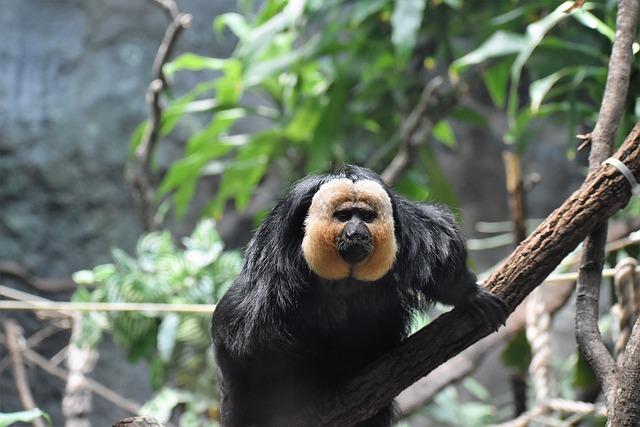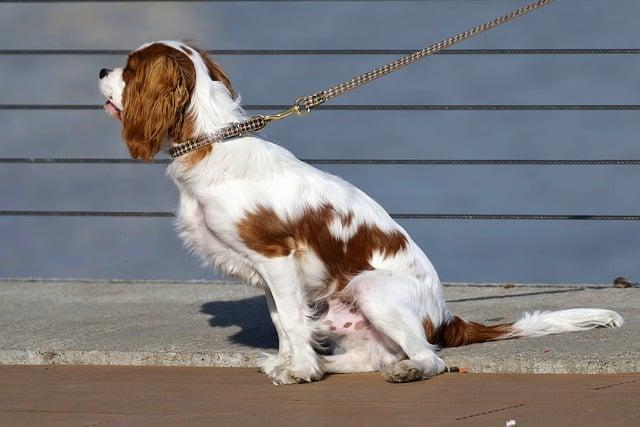In the heart of the rugged mountains, a lone Belgian Malinois stood guard over a lost hiker. With unwavering loyalty and unmatched courage, this breed exemplified toughness. Known for their intelligence and resilience, Belgian Malinois are often chosen by military and police forces worldwide. Their agility and strength make them formidable protectors, but it’s their unwavering spirit that truly sets them apart. When it comes to the toughest breed of dog, the Belgian Malinois not only meets the challenge but redefines it. Choose wisely; toughness has a name.
Contents
- Understanding the Characteristics That Define Toughness in Dog Breeds
- Evaluating the Top Contenders for the Title of Toughest Dog Breed
- The Role of Training and Socialization in Enhancing a Dogs Toughness
- Making an Informed Choice: Recommendations for Potential Dog Owners
- Q&A
Understanding the Characteristics That Define Toughness in Dog Breeds
When discussing the traits that contribute to a dog breed’s toughness, several key characteristics come into play. **Physical strength** is often the first attribute that comes to mind. Breeds like the Rottweiler and Mastiff are renowned for their muscular builds and powerful jaws, making them formidable protectors. However, toughness is not solely about brute strength; it also encompasses **endurance**. Breeds such as the Alaskan Malamute and Siberian Husky are celebrated for their ability to withstand harsh conditions and continue working tirelessly, showcasing a resilience that is equally impressive.
Another critical aspect of toughness is **temperament**. A dog’s mental fortitude can be just as important as its physical capabilities. Breeds like the Belgian Malinois and German Shepherd are not only strong but also exhibit high levels of intelligence and trainability. This combination allows them to handle challenging situations with confidence and composure, making them ideal for roles in law enforcement and military work. Their ability to remain calm under pressure is a testament to their tough character.
Moreover, **adaptability** plays a significant role in defining a tough breed. Dogs that can thrive in various environments and situations demonstrate a level of toughness that is essential for survival. Breeds such as the American Bulldog and Boxer are known for their versatility, able to transition from family companions to working dogs with ease. This adaptability ensures that they can face new challenges head-on, whether it’s navigating a busy city or protecting their home.
Lastly, the **drive and motivation** of a breed contribute significantly to its toughness. Breeds like the Doberman Pinscher and Pit Bull Terrier are often characterized by their high energy levels and determination. These dogs possess an innate desire to please their owners and excel in various tasks, whether it’s agility training or protection work. This relentless spirit not only showcases their toughness but also highlights the bond they share with their humans, making them loyal companions who are always ready to rise to the occasion.
Evaluating the Top Contenders for the Title of Toughest Dog Breed
When it comes to determining the toughest dog breed, several contenders stand out due to their physical prowess, loyalty, and protective instincts. Each breed brings its unique set of characteristics that contribute to its reputation for toughness. Among these, the following breeds are often highlighted:
- American Pit Bull Terrier: Known for their strength and agility, Pit Bulls are often misunderstood. Their tenacity and loyalty make them formidable protectors, while their intelligence allows for effective training.
- Rottweiler: With a powerful build and a confident demeanor, Rottweilers are not only strong but also highly trainable. Their natural guarding instincts make them excellent companions for those seeking protection.
- German Shepherd: Renowned for their versatility, German Shepherds excel in various roles, from police work to search and rescue. Their intelligence and courage make them a top choice for those needing a tough yet loyal companion.
- Belgian Malinois: Often used in military and police operations, the Belgian Malinois is known for its agility and drive. Their high energy levels and intelligence make them exceptional working dogs.
Another breed that often enters the conversation is the Doberman Pinscher. With their sleek physique and keen intelligence, Dobermans are not only striking in appearance but also possess a natural instinct to protect their families. Their loyalty and trainability further enhance their reputation as one of the toughest breeds available. Additionally, their speed and agility make them formidable opponents when necessary.
While the Bullmastiff may not be as agile as some of its counterparts, its sheer size and strength cannot be overlooked. Originally bred to guard estates, Bullmastiffs are known for their protective nature and calm demeanor. Their imposing presence alone can deter potential threats, making them a reliable choice for those seeking a tough breed that also offers a gentle side.
Ultimately, the title of the toughest dog breed may vary depending on individual preferences and needs. Each of these breeds showcases unique attributes that contribute to their toughness, whether it be through strength, loyalty, or protective instincts. When evaluating these contenders, it’s essential to consider not only their physical capabilities but also their temperament and suitability for your lifestyle.
The Role of Training and Socialization in Enhancing a Dogs Toughness
Training and socialization play a pivotal role in shaping a dog’s character and resilience. A well-trained dog is not only obedient but also confident, which contributes significantly to its toughness. Through consistent training, dogs learn to navigate various situations, reducing anxiety and fear responses that can undermine their strength. This process fosters a sense of security, allowing them to face challenges head-on, whether it’s encountering new environments or interacting with other animals.
Socialization is equally crucial in developing a dog’s toughness. Exposing dogs to diverse experiences, people, and other animals helps them build adaptability and resilience. When dogs are socialized from a young age, they become more comfortable in unfamiliar situations, which enhances their ability to cope with stress. This exposure teaches them to assess risks and respond appropriately, rather than reacting with fear or aggression. A well-socialized dog is more likely to exhibit calmness and confidence, traits that are essential for any tough breed.
Moreover, the bond formed between a dog and its owner during training and socialization cannot be overstated. This relationship fosters trust and loyalty, which are vital components of a dog’s toughness. When dogs feel secure in their connection with their humans, they are more willing to take on challenges and protect their loved ones. This loyalty can manifest in various ways, from guarding behavior to a steadfast demeanor in the face of adversity, showcasing the true essence of toughness.
investing time and effort into training and socialization not only enhances a dog’s toughness but also enriches its overall quality of life. A tough dog is not merely defined by its physical attributes but by its mental fortitude and emotional resilience. By prioritizing these aspects, dog owners can cultivate a breed’s inherent strengths, ensuring that their canine companions are not just tough in appearance but also in spirit.
Making an Informed Choice: Recommendations for Potential Dog Owners
Choosing the right dog breed is a significant decision that requires careful consideration. For those drawn to the idea of owning a tough breed, it’s essential to understand the unique characteristics and needs of these dogs. Breeds often labeled as “tough” may possess strong physical attributes, but they also come with specific behavioral traits that potential owners must be prepared to manage. Understanding these nuances can help ensure a harmonious relationship between you and your canine companion.
When considering a robust breed, it’s crucial to evaluate your lifestyle and environment. Some breeds, such as the **Rottweiler**, **Pit Bull**, and **German Shepherd**, thrive in active households where they can engage in regular exercise and mental stimulation. If you lead a sedentary lifestyle or live in a small apartment, these breeds may not be the best fit. Instead, consider breeds that are more adaptable to your living situation while still offering the strength and loyalty you desire.
Training and socialization are paramount when it comes to owning a strong breed. These dogs often require consistent, positive reinforcement training to channel their energy and instincts appropriately. Engaging in obedience classes or working with a professional trainer can make a significant difference in your dog’s behavior. Additionally, early socialization with various people, environments, and other animals can help mitigate potential aggression or anxiety, ensuring your dog grows into a well-rounded companion.
Lastly, it’s essential to be aware of the commitment involved in caring for a tough breed. These dogs often require more than just basic care; they need mental challenges, physical exercise, and a strong bond with their owners. Consider the time, effort, and resources you can dedicate to your new pet. By making an informed choice and understanding the responsibilities that come with owning a strong breed, you can create a fulfilling and rewarding relationship that benefits both you and your dog.
Q&A
-
What is the toughest breed of dog?
The American Pit Bull Terrier is often considered one of the toughest dog breeds. Known for their strength, agility, and determination, they are highly resilient and capable of handling challenging situations. Their loyalty and protective nature make them excellent companions, especially for active families.
-
Are tough breeds suitable for families?
Yes, many tough breeds, including the Rottweiler and German Shepherd, can be excellent family pets. With proper training and socialization, these breeds can be gentle, loving, and protective of their families. It’s essential to ensure that they receive adequate exercise and mental stimulation to thrive in a family environment.
-
What factors contribute to a dog’s toughness?
A dog’s toughness is influenced by several factors, including:
- Physical Strength: Muscular build and endurance.
- Temperament: Confidence and resilience in various situations.
- Training: Proper training enhances a dog’s ability to handle challenges.
- Socialization: Exposure to different environments and experiences.
-
How can I ensure my tough breed is well-behaved?
To ensure your tough breed is well-behaved, focus on:
- Consistent Training: Use positive reinforcement techniques.
- Regular Exercise: Provide daily physical and mental activities.
- Socialization: Introduce them to various people, pets, and environments.
- Professional Guidance: Consider enrolling in obedience classes or hiring a trainer.
while the toughest breed of dog may vary based on individual needs and circumstances, understanding their unique traits can guide you in making an informed choice. Choose wisely, and you’ll find a loyal companion ready to face any challenge with you.

大家好,我是彼得潘,專業的手法身體治療師。我喜歡探索和研究各種主題,並透過與人工智慧的合作分享專業、實用、有趣的文章。我們定期進行人工審核,以確保內容的準確性。如果您發現文章中有任何不準確的地方,請隨時與我們聯繫,我們會及時糾正。您可以透過 [email protected] 與我們聯繫。



